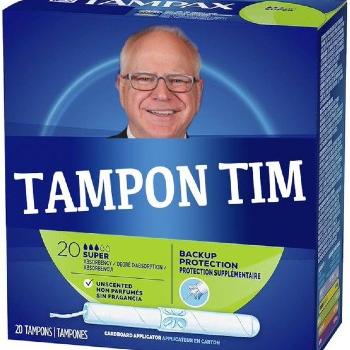Amy Traub writes about one of my hobby horses for The American Prospect: “Give Us Some Credit: States work to curb the financial background checks that can keep the unemployed out of work.”
Today, six in ten employers say that they check the credit histories of some or all prospective employees before making final hiring decisions. This traps many jobseekers in what workplace advocate Nat Lippert describes as a devastating catch-22: They can’t attain employment because of poor credit, yet they can’t pay off bills and improve their credit without income from a job.
There is no reason for any potential employer to use an applicant’s credit score as part of the hiring process. That is not what credit scores are designed to do and they cannot be made to serve any useful purpose when misused in this way.
The only logic to such misuse of credit scores by potential employers is an attempt to avoid litigation by refusing to take responsibility for one’s own decisions. That actually is part of why credit scores were invented and why their use has flourished, but it wasn’t employers who were supposed to be disowning all responsibility for their decisions, it was banks.
I want to quickly look at the various intended purposes of these credit scores — most of which aren’t really useful, some of which are inevitably destructive and harmful for all concerned — but first let me say a word about the politics of credit scoring.
This is not a partisan issue. Credit scores and their expanding, usurping application in every area of life are not an expression of either liberal or conservative ideas. Neither liberal nor conservative ideology offers reasons to defend this expanding, freedom-restricting practice. Both liberal and conservative ideology offer powerful reasons that this practice should not be allowed to control as much of our economy and our individual lives as it does.
Reigning in the pernicious influence of the credit scoring agencies ought to be near the top of any progressive agenda because it makes life even worse for the poorest, for minorities, for the powerless. And it ought to be near the top of any “tea party” type agenda because if you’re genuinely concerned about “the road to serfdom,” then it would be hard not to notice that for most Americans, most of the time, Equifax, Experian and TransUnion are doing more to promote serfdom than even the worst caricature of the IRS or the EPA.
We did not elect these credit agencies to rule over us. They were not established in our Constitution as a fourth, unchecked branch of government. Yet in our capacities as consumers or merchants, as employees or employers, they exert more influence and restrict our freedom far more than anything done by the mayors or councils of our towns, more than anything done by the governors and legislatures of our states. Most days more even than anything done by the Congress or the president. And while the Congress, president, governors, legislatures, mayors and councils are all — at least theoretically — democratically accountable and legally prevented from abusing their powers, the credit scoring agencies are not.
To say that the law or the government must not interfere with credit scoring agencies is not a “free market” argument and it is not a “small government” argument. These agencies have insinuated themselves throughout our markets, changing the way they would operate. And to say that the government — that is, the people — ought not to be allowed to reign them in is only to say that they ought to be allowed, unchecked, to replace that government and to dictate to the people.
This is not a partisan issue. It has two sides, but they are not distinguished by categories of liberal and conservative. They are distinguished by categories of those who profit from credit scoring and everyone else — by two categories of predator and prey.
Here, then, are the functions, the intended purposes for which credit scores were designed.
1. Credit scores provide a numeric — and therefore authoritative-sounding — pretense for charging poor people more than others are charged. For almost everything: rent, car insurance, auto loans, health insurance, you name it. The indispensable variables for credit scores are income and wealth. An irresponsible wealthy person who skips payments will have a lower score than a responsible wealthy person, and a responsible poor person will have a higher score than an irresponsible poor person — but responsibility, diligence and all those other virtues for which a credit score pretends to be a proxy are simply variables that qualify the core quantity of wealth and income. And that allows the credit scorers and their customers to pretend that poor people aren’t simply people with less wealth and lower income, but that they are all irresponsible, lazy and less moral, less worthy than those with higher “scores” due to greater wealth.
That’s evil on several levels. It takes money away from poor people — evil. It tells poor people they’re no good — evil. It encourages rich people to take money away from poor people and to treat those poor people as though they’re no good — evil, evil, evil.
2. Credit scores provide a numeric — and therefore seemingly objective — fig-leaf for privileging the Old Boys Network. It allows the privileged to pretend that they’re not privileged, casting a meritocratic sheen over that which was not earned and allowing those who have been granted privilege to exclude others while pretending they’re only enjoying that which is due to those objectively shown to have higher scores. Some will protest that they are not themselves members of the Old Boy Network, yet they still have excellent credit. And that proves my point, because their excellent “scores” still won’t gain them access to the Old Boys Network. You can’t earn your way into that because it’s not really a meritocratic distinction no matter how many magical “scores” one cites to pretend otherwise.
3. Credit scores excuse banks and other lenders from the expense and effort of actual due diligence. Banks — and even more so non-bank lenders like Countrywide and its ilk — eagerly replaced the time-consuming, hard work of due diligence with a mechanical reliance on credit scores. That promised a short-term savings, but it turned out to have massive, global, long-term costs. It turns out that an over-reliance on credit “scores” that were compiled with a deliberate disregard for accuracy (see below) leads to hundreds of thousands of bad loans and hundreds of thousands more dubious loans and no way to tell which is which. Suddenly realizing that they had billions in bad loans on their books and no sure way even to know which loans those were led to, well, 2007 and 2008, the Great Financial Crisis, the Great Recession, etc., causing real, tangible pain for hundreds of millions of people.
Banks and other lenders didn’t just rely on credit scores instead of actual due diligence in order to cut costs and expedite their willy-nilly pre-crisis lending spree. They also relied on credit scores because they provide a mask of objectivity that allowed them to claim that none of their lending decisions were actually decisions at all. We don’t make decisions, the lenders said, we simply apply “scores.” This, they felt, shielded them from litigation and blame. And in some cases it allowed them to claim that their discrimination was unbiased (“we’re not redlining that black neighborhood, they just don’t have high enough scores”).
4. Credit scores are a protection racket. Your credit scores are not accurate. Your credit scores were not designed to be accurate. It’s not that the credit rating agencies deliberately insert errors into their scores, but rather that they calculate them with a deliberate disregard for accuracy. To calculate them accurately would undermine one of the primary revenue streams of the credit rating agencies’ business model. You’ve seen the ads, you know the jingles. Credit rating agencies make money by charging a monthly fee to “allow” consumers to do their job for them. Pay a monthly fee to each of the three credit rating agencies and you will be permitted to attempt to ensure the accuracy that they cannot be bothered to attempt to ensure themselves because, if they did, then they couldn’t get you to pay them each a monthly fee.
The racket is exactly that transparent. And please note that this isn’t something I am accusing them of, this is something they explain themselves, explicitly, hundreds of times a day on the radio, on television and in advertisements all over the Internet. If you don’t pay them, they will not guarantee the accuracy of the credit score on which your ability to borrow or to purchase — or perhaps even to earn a living — depends. “Nice credit score ya got there. Shame if anything happened to it.” That’s exactly what they’re saying, brazenly, in all those ads.
(Another side effect of credit scoring, one that unlike the above is not, I don’t think, a matter of deliberate design, is that they promote innumeracy. The credit score is a magical number — magical in the sense that it purports to be a measurement, yet it is impossible to say what exactly is allegedly being measured or what the units of measurement are. That’s all “proprietary,” secrets denied to all but Level VIII Operating Thetans and Third Degree Masons who have been initiated into the gnostic mysteries of credit-scoring math. As a general rule, it’s not good for numeracy when magical numbers are allowed to replace actual numbers — numbers signifying actual, tangible things, such as dollars or inches or hours.)
Amy Traub points to some encouraging news in her article:
A growing number of states are also taking action to restrict the use of credit checks in employment. Hawaii, Illinois, Oregon, Washington, Maryland and Connecticut have passed legislation limiting the use of credit checks in hiring, firing, and promotions. More than 20 other states, including California, New York and Tennessee are considering bills. The moves are, in part, to help good employees … get jobs they deserve, but also address a more fundamental problem: There’s no real evidence that the practice is good for employers, either.
Companies justify the credit checks by saying they need some way to assess a job applicant’s reliability and character. Credit checks have been aggressively marketed to employers by for-profit credit bureaus to do just that. Yet it’s far from clear that running credit checks benefits employers. The only available rigorous study of employment credit checks concluded that there’s no correlation between credit history and job performance. Even industry representatives admit this. Eric Rosenberg, Director of State Governmental Relations for TransUnion, one of the three major credit reporting agencies, conceded: “…we don’t have any research to show any statistical correlation between what’s in somebody’s credit report and their job performance or their likelihood to commit fraud.”
The downside of Traub’s article is that she notes that companies making fantastic profits selling credit scores have been able to reinvest some of those profits into lobbying for exemptions and loopholes in that state-by-state legislation.
For the record, I have pretty good credit. My magic number is considered acceptably white high. The anger you’ve probably noticed in this rant of a post doesn’t arise from me yet getting burned personally by the expanding influence of credit scoring and the unelected, unaccountable, supra-market, supra-governmental agencies to whom we have surrendered so much power. I’m not waiting for that to happen. I’m trying to save time by getting angry now.















